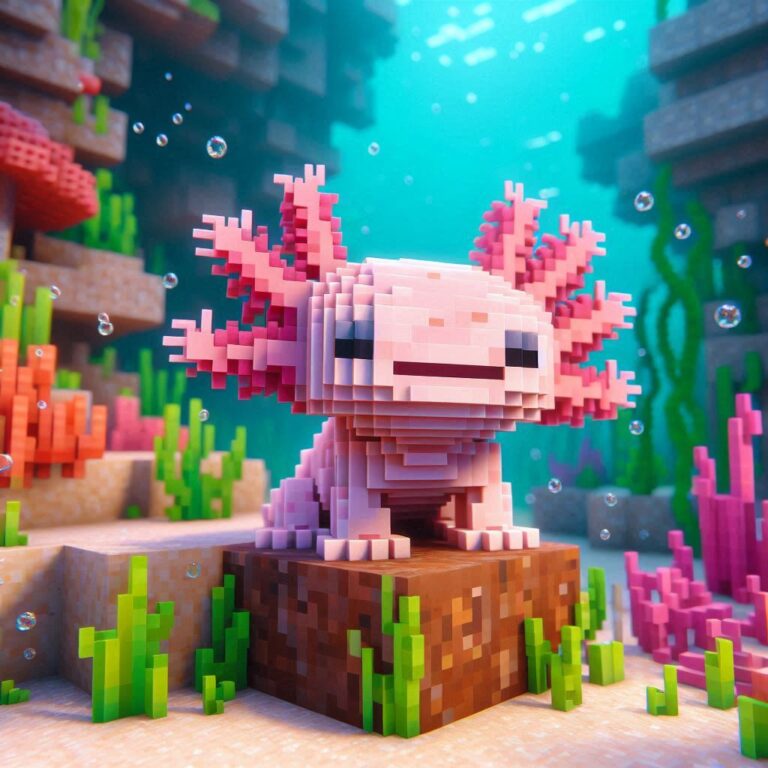
Axolotls, fascinating amphibians renowned for their regenerative abilities and unique appearance, typically inhabit freshwater environments with cooler temperatures. However, Qatar’s warm climate poses significant challenges for these creatures. Given their sensitivity to temperature and water quality, axolotls may struggle to thrive in Qatar’s environment, which tends to be hot and arid. While some individuals may attempt to create artificial habitats with controlled temperature and water conditions, the natural climate of Qatar isn’t conducive to the well-being of axolotls. Therefore, it’s essential for those interested in owning axolotls in Qatar to thoroughly research and consider the feasibility of providing a suitable environment before attempting to do so.
Environment Effect
In the dynamic ecosystem of Qatar, the environment exerts a profound influence on all forms of life, including exotic species like axolotls. The arid desert climate dominates Qatar, characterized by scorching temperatures and minimal precipitation. Such conditions present a stark contrast to the natural habitats of axolotls, which thrive in cool, freshwater environments. This disparity underscores the challenges of maintaining axolotls in Qatar, as their biological requirements for temperature and water quality may be difficult to meet. However, despite these hurdles, dedicated enthusiasts may endeavor to create artificial habitats, employing innovative techniques to regulate temperature and ensure suitable conditions for their aquatic companions. Such efforts highlight the adaptability and resilience of both the creatures and their caretakers in the face of environmental constraints.
Climate in Qatar
Qatar’s climate is emblematic of the region’s desert landscape, characterized by intense heat and limited rainfall. With scorching summers where temperatures soar above 40°C (104°F) and mild winters offering little relief, the climate poses significant challenges for maintaining delicate species like axolotls. These amphibians, native to the cool, oxygen-rich waters of Mexico’s Lake Xochimilco, may struggle to acclimate to Qatar’s harsh conditions. The aridity of the environment coupled with the lack of natural bodies of freshwater further compounds the difficulties of creating suitable habitats for axolotls. Despite these climatic hurdles, enthusiasts may explore innovative solutions, such as utilizing advanced cooling systems or constructing climate-controlled enclosures, to mimic the conditions necessary for axolotl survival.
Availability of Suitable Habitats
In a landscape dominated by deserts and urban development, finding suitable habitats for axolotls in Qatar presents a unique challenge. Unlike their natural habitat of freshwater lakes and canals, Qatar’s terrain offers limited opportunities for the establishment of thriving axolotl environments. However, resourceful enthusiasts may explore alternative options, such as custom-built aquariums or indoor ponds, to create artificial habitats that meet the specific needs of these aquatic creatures. Additionally, advancements in aquaculture technology and habitat design allow for the creation of intricately controlled environments, enabling axolotl enthusiasts to cultivate thriving ecosystems tailored to the unique requirements of their amphibious companions. Despite the environmental constraints, the dedication and ingenuity of axolotl enthusiasts in Qatar highlight the potential for creating sustainable habitats that support the well-being of these fascinating creatures.
Legality
Navigating the legal landscape surrounding exotic pets like axolotls in Qatar requires careful consideration and adherence to regulations. While these amphibians may captivate enthusiasts with their unique characteristics, their ownership is subject to stringent laws aimed at preserving biodiversity and safeguarding animal welfare. Understanding the legal framework governing the possession and care of axolotls is essential for prospective owners to ensure compliance and avoid potential repercussions. By consulting relevant authorities and staying informed about evolving legislation, individuals can embark on the responsible ownership of axolotls in Qatar, fostering a harmonious coexistence between humans and these captivating aquatic creatures.
Laws and Regulations in Qatar
Qatar, renowned for its rich cultural heritage and vibrant urban landscape, also boasts a comprehensive legal framework governing the ownership and importation of exotic pets. The Qatar Environment and Wildlife Authority (QEWA) plays a pivotal role in enforcing regulations aimed at preserving the country’s ecological balance and protecting endangered species. Individuals seeking to own axolotls must navigate a complex web of laws that dictate permissible species, enclosure requirements, and licensing procedures. Compliance with these regulations is paramount to ensure the ethical and responsible care of axolotls, fostering a culture of conservation and sustainability within Qatar’s diverse ecosystem.
Importation Restrictions
Importation restrictions serve as a crucial component of Qatar’s efforts to regulate the influx of exotic species and mitigate potential risks to native flora and fauna. The Qatar Ministry of Municipality and Environment oversees the importation of live animals, imposing stringent measures to prevent the introduction of invasive species and diseases. Prospective axolotl owners must adhere to established protocols governing the importation process, which may include obtaining permits, undergoing quarantine procedures, and meeting specific health and welfare standards. By upholding these importation restrictions, Qatar aims to safeguard its biodiversity and uphold its commitment to environmental stewardship, fostering a sustainable ecosystem where exotic pets like axolotls can thrive responsibly and ethically.
Axolotl Price in Qatar
The allure of owning an axolotl in Qatar comes with considerations beyond mere fascination; prospective owners must also factor in the cost implications associated with acquiring and caring for these unique amphibians. Axolotl prices in Qatar can vary significantly depending on a myriad of factors, including the animal’s size, color morph, and pedigree. While entry-level axolotls may be available at relatively affordable prices, rare color variants or genetically enhanced specimens can command premium rates. Furthermore, factors such as breeder reputation, age, and overall health can influence the price tag attached to these captivating creatures. Aspiring axolotl enthusiasts should conduct thorough research and budgeting to ensure they are financially prepared to embark on this rewarding journey of pet ownership.
Cost Factors
Understanding the various cost factors involved in acquiring and caring for axolotls in Qatar is paramount for informed decision-making. Beyond the initial purchase price of the axolotl itself, prospective owners must also budget for essential accessories and ongoing maintenance expenses. Factors such as aquarium size, filtration systems, water quality testing kits, and appropriate substrate all contribute to the overall cost of setting up a suitable habitat for axolotls. Additionally, recurring expenses such as specialized food, electricity for heating and lighting, and potential veterinary care should be factored into the long-term cost projections. By meticulously assessing these cost factors and establishing a comprehensive budget, axolotl enthusiasts can ensure they are adequately prepared to provide the optimal care and environment for their aquatic companions.
Where to Purchase
Finding a reputable source from which to purchase axolotls in Qatar is a crucial step in the journey of pet ownership. While some enthusiasts may opt to purchase axolotls from local pet stores or aquariums, others may prefer to seek out specialized breeders or online sellers who offer a wider selection of color morphs and genetic variations. It’s essential to prioritize ethical breeding practices and the health and welfare of the animals when selecting a source for axolotls. Additionally, engaging with knowledgeable breeders or sellers who provide ongoing support and guidance can be invaluable for first-time axolotl owners navigating the intricacies of care and maintenance. By carefully vetting potential sources and investing in quality specimens, axolotl enthusiasts can embark on a fulfilling journey of companionship with these enchanting aquatic creatures.
Pros and Cons of Owning Axolotl in Qatar

Owning an axolotl in Qatar offers a unique and rewarding experience, but it also comes with its own set of challenges and considerations. Below, we explore the pros and cons of keeping axolotls in Qatar:
Pros
- Fascinating Creatures: Axolotls are captivating amphibians known for their regenerative abilities and unique appearance, making them fascinating pets to observe and interact with.
- Low Maintenance: Compared to traditional pets like dogs or cats, axolotls require minimal maintenance. They don’t need walks or constant attention, making them ideal for busy individuals or those with limited space.
- Minimal Space Requirements: Axolotls can thrive in relatively small aquariums, making them suitable for apartment dwellers or anyone with limited living space.
- Long Lifespan: With proper care, axolotls can live for up to 10-15 years in captivity, providing long-term companionship for their owners.
- Educational Value: Keeping axolotls can be an educational experience, especially for children, teaching them about aquatic ecosystems, biology, and responsible pet ownership.
Cons
- Temperature Sensitivity: Axolotls are sensitive to temperature fluctuations and require cool water to thrive. Maintaining suitable water conditions in Qatar’s warm climate can be challenging and may require additional equipment like chillers or air conditioning.
- Specialized Care Requirements: Axolotls have specific care requirements, including clean, oxygenated water, and a balanced diet. Failure to meet these requirements can lead to health issues such as bacterial infections or stress.
- Limited Availability of Veterinary Care: Finding veterinarians with expertise in exotic pets like axolotls may be challenging in Qatar. In case of health issues, owners may struggle to find appropriate medical care for their amphibian companions.
- Legal Restrictions: The ownership of axolotls may be subject to legal restrictions or regulations in Qatar. Prospective owners should research and ensure compliance with local laws before acquiring these amphibians.
- Limited Interaction: Unlike more social pets like dogs or cats, axolotls are primarily solitary creatures and may not provide the same level of interaction or companionship. Owners should be prepared for a more observational relationship with their axolotl.
FAQs
Q. Can axolotls survive in Qatar’s climate?
A. Axolotls are native to cooler, freshwater environments and may struggle in Qatar’s warm climate.
Q. Are axolotls legal to own in Qatar?
A. It’s crucial to check local laws and regulations regarding the ownership of axolotls in Qatar.
Q. How much do axolotls typically cost in Qatar?
A. Axolotl prices can vary based on factors like size, color, and where you purchase them. On average, they may range from QAR 200 to QAR 500.
Q. What factors influence the price of axolotls in Qatar?
A. Size, color morph, and the breeder’s reputation can all impact the price of axolotls in Qatar.
Q. Where can I buy axolotls in Qatar?
A. You can inquire at local pet stores, aquariums, or search online for reputable axolotl breeders or sellers in Qatar.
Q. What are the advantages of owning an axolotl in Qatar?
A. Axolotls are fascinating creatures to observe and can make unique pets. They require minimal space and maintenance compared to other pets.
Q. What challenges might arise from owning an axolotl in Qatar?
A. Maintaining appropriate water temperature and quality can be challenging in Qatar’s warm climate. Additionally, sourcing suitable food and veterinary care may also pose difficulties.
Q. Can axolotls adapt to Qatar’s environment?
A. Axolotls are not known for their adaptability to warm climates, so providing a suitable environment with controlled temperature and water conditions is crucial for their survival.
Q. Are there any restrictions on importing axolotls into Qatar?
A. Qatar may have regulations regarding the importation of exotic pets, including axolotls. It’s essential to research and comply with these regulations before attempting to import axolotls.
Q. Do axolotls make good pets for beginners in Qatar?
A. While axolotls can be intriguing pets, they require specific care and attention to thrive. Beginners should thoroughly research their needs and be prepared to provide appropriate care before getting an axolotl.
Conclusion
In conclusion, the decision to own an axolotl in Qatar presents both opportunities and challenges. These fascinating amphibians offer a unique blend of low-maintenance care, educational value, and long-term companionship for dedicated enthusiasts. However, the realities of Qatar’s warm climate, specialized care requirements, and potential legal considerations underscore the importance of informed decision-making and responsible pet ownership.

Hassan Shah carries over four years of hands-on expertise in caring for axolotls, guided by his cherished companion ‘Little Bruno,’ a thriving axolotl under his attentive care for three years.



